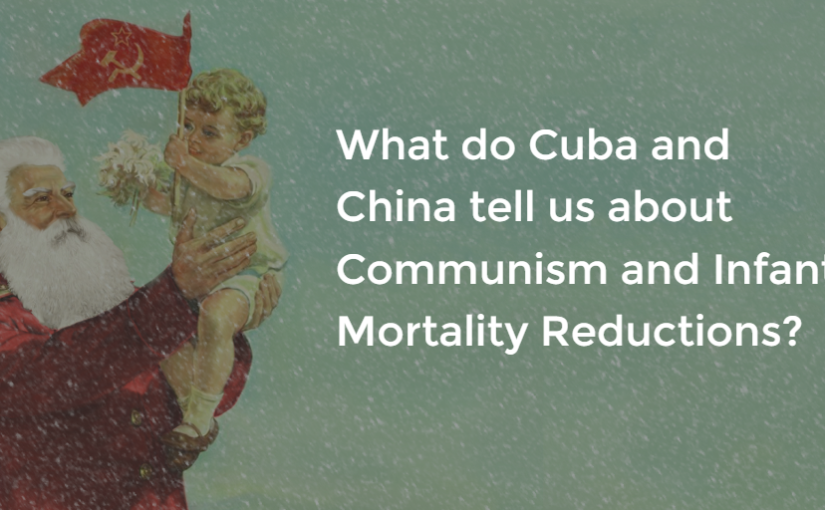The first response to my last post was to point to Cuba’s low infant mortality rate; it is currently below the US’s rate. This seems like a refutation of the claim that competitive markets are a necessary condition for serious public health improvements.
There’s a propagandistic response to Cuba’s numbers, which I think is worth mentioning even if it’s still propagandistic: Cuba maintains its low infant mortality rate by strongly promoting abortions in any case of fetal abnormality. It’s really hard to establish the extent to which that is true, since only one researcher at the University of Oklahoma, Katherine Hirschfield, has claimed it while having her account sited in every case where Cuba’s infant mortality is discussed in the US media. But Cuba does have an abortion rate almost twice that of the US, so it may be a factor.
But Cuba’s pre-revolutionary infant mortality was already quite low: about 3.7% (37 under-five deaths per 1000 live births). These gains from the pre-industrial baseline were achieved under a pretty rotten colonialist capitalism. Thus, it seems to be the case the case that it’s possible to reduce infant mortality under a variety of economic systems. (Which is fine: we probably think too vaguely when we discuss these systems of communism and capitalism.)
I guess I’d add that Cuba does have free trade with everyone in the world who is not the US, so it doesn’t seem like a case of real protectionism. In fact, they actually export medical services in pretty significant ways, as well as benefiting from remittances.
The Chinese case is a more interesting one: the pre-revolutionary infant mortality rate was roughly equivalent to the background “natural evil” rate that I mentioned. Thus, the Maoist revolution drastically improved infant mortality! Through the training of midwives and later “barefoot doctors” rural infant mortality in China was brought from roughly pre-industrial levels (30% of live born children died before the age of 5) to roughly 70 in 1000 (7%) in 1978. That’s massive and worthy of serious praise. It’s also a serious challenge to the claim that only competitive markets can decrease infant mortality. The Chinese Revolution, in aggregate, was able to reduce infant mortality substantially: even including the Great Leap Famines which killed between 22 and 45 million people in three years (and likely increased fetal and infant mortality by similar levels), the gains are substantial.
Because I think capitalism is too highly specific, I often talk about competitive markets in the alternative. But the real key feature, it seems to me, is globalization: free trade with other countries. That is why I particularly balked at protectionism, without having much of a complaint about various ways to pay for medical services like single-payer plans or state-run hospitals.
Yet China reduced infant mortality significantly without free trade, and Cuba reduced it significantly with free trade. A long view obliterates any claim that infant health can be directly tied to any economic regime at all. On this, I was simply wrong, and glad to know it.
I started out to write a neoliberal theo-politics; rough and ready and trying to show where matters of relatively unchallenged beliefs about the world have led me. Challenges and data now force me to revise those beliefs. What could be more neoliberal and technocratic than that?

Second Opinions